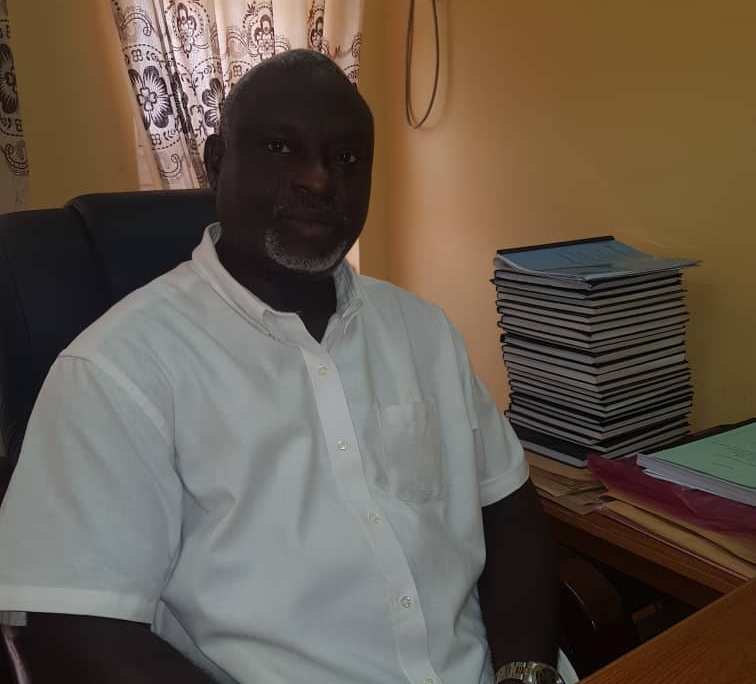
Dr. Justin E. Agheyisi( Head of Department, Geography and Regional Planning )
Welcome Address
Welcome to the Department of Geography and Regional Planning, the basic aim of the Department is to provide vigorous training in both empirical and theoretical issues involved in understanding, analyzing, and interpreting spatial patterns of human natural processes operating on the earth’s surface. The impacts which, these processes generate on both the human and natural environments, the understanding which is fundamental to national and international development, constitute a major part of our research focus. In July 1979, the Department of Social Sciences comprising Geography, Political Science and Sociology was established in the Faculty of Arts and Social Sciences. This was later restructured into two Faculties: Faculty of Arts and Faculty of Social Sciences. The Department of Geography and Regional Planning is one of the six academic Departments in the Faculty of Social Sciences. The other Departments are Political Sciences, Public Administration, Sociology, and Anthropology among others.
Teaching and Research Facilities
The Cartographic Unit and the Meteorological Station of the Geography and Regional Planning Department contain specialized equipment and research facilities for the use of students and staff. The workroom in the Cartography Unit also has a large collection of maps, charts, atlases, and aerial photographs covering most parts of Nigeria. The Department has a well-equipped Geographic Information system laboratory where students are trained in the use of current software.
The Department Library contains a working collection of books in Geography and Regional Planning, the collection is continuously updated by the addition of new publications in the field of Geography and Planning plus subscriptions to major Scientific Journals.
Other teaching facilities include complete sets of land surveying equipment such as theodolites, ranging poles, leveling tables, Gunter chains, etc. Accessible to our students are the main computer facilities. Engineering Facilities and Educational Resource Centre-Facilities located outside the Department.
The research activities of lecturers in the Department are mainly in the fields of Urban and Regional Planning, Hydrology and Water Resources, Population and Resource Analysis, Transportation and Development, Geomorphology and Land Evaluation, Rural Development and Planning, Man – Environment System, Humanistic Geography, Philosophy of Geography, Remote Sensing, Cartography, Photogrammetry, Geographic Information System, Climatology and Biography.
The revised programme has therefore classified both the Geographical and Regional Planning components of the Department.
B.Sc (GEOGRAPHY AND REGIONAL PLANNING): BASIS FOR REVIEW
The revision of the Undergraduate Degree Programme of the Department is based on the two factors, namely:
A. The need to strengthen the justification for the Undergraduate Degree Programme name of the Department, thereby, justifying the persistent request by students for a Degree that reflects the name of the Department into which they are duly admitted.
B. The need to comply with the NUC approved minimum academic standards.
STRUCTURE OF THE PROGRAMME
Two categories of courses are included in the programme namely: compulsory and elective. Compulsory courses are those which are mandatory and required and must be taken and passed by all students at particular levels.
Elective courses are those which students at a particular level must choose so as to make up the minimum credit load for that level.
DISTINCT FEATURES OF THE REVISED PROGRAMME
First, we wish to state that the Department of Geography and Regional Planning has always emphasized planning applications in all the courses it offers. Furthermore, we also wish to state that:
GEO 317: Environmental Cognition and Landscape Planning
GEO 330: Land Use Evaluation and Planning
GEO 415: Regional Planning and Development
GEO 424: Rural Development and Planning
GEO 429: Urban Transportation Systems and Planning
In this revised programme GEO 317, GEO 415, GEO 424 and GEO 426, which were formally elective courses, have been upgraded and are now compulsory. Further, we have introduced:
GEO 318: Elements of Urban Planning and
GEO 432: Elements of Urban Design
This is to strengthen the student’s knowledge of the history and design aspect of planning.
STUDENT ORGANIZATION AND PUBLICATIONS
All single Honours and Education Students in the Department are expected to register as members of the Students of the Geographical Association of the Undergraduate Students in the Department.
Among its objectives are the encouragement of social activities among geographers; between geographers and other students on campus, publicizing the content and purpose of modern geography; encouraging pupils in schools to study Geography and generally projecting the Discipline of Geography worldwide. The Association publishes annually a Journal containing scholarly Articles from both students and staff of the Department. The Journal is edited by the students and supervised by a Senior Academic Staff.
AIMS OBJECTIVES OF THE DEGREE PROGRAMME
The undergraduate courses of the Department are structured to lay a thorough foundation in all the major branches of Geography and Regional planning. Students are trained also in the applied aspects of the subject to equip them for the wide range of professions which are open to Geography and Regional Planners in Nigeria. Training is also given to the students in the Philosophy and Techniques of the subjects to initiate them into methods of research which will equip them for further specialization at the postgraduate level.
ADMISSION REQUIREMENTS
A. FOUR YEAR DEGREE PROGRAMME
Admission into the Four-Year Degree Programme is through the Joint Matriculation, Examination (JMB). To be eligible for admission to this Four-Year B.Sc Degree Programme in Geography and Regional Planning, a student must obtain:
(a) A Senior Secondary Certificate or General Certificate of Education or their equivalents with at least five Credit Passes which must include English Language and Geography at not more than two sittings.
(b) An acceptable pass in the JME in the following subjects, Use of English, Geography and other Social Science subjects or any other Science subjects.
B. THREE YEAR B.Sc. DEGREE PROGRAMME
Admission into Three-Year B.Sc Degree Programme in Geography and Regional Planning is through Direct Entry. To be eligible for Admissions into this programme, a student must obtain:
a) At least five Credit Passes in the General Certificate of Education or its equivalent of which at least two shall be at the Advanced Level or Have Credit Passes of which at least three shall be at the Advanced level provided that such passes arc not counted at both Levels of the examination. Two “A” Level subjects must include Geography and any other Social Science or Science subject(s) while the “O” Level subject must include English Language and Mathematics.
b) A Merit Pass in the N.C.E. English Language or a pass in the General Paper at the H.S.C. is acceptable as fulfilling the English Language requirement for Direct Entry only, and
c) At least a Credit in Mathematics
DEGREE PROGRAMME AND REQUIREMENT
DEGREE REQUIREMENTS
In order to obtain a Bachelor of Science (B.Sc) Degree in Geography and Regional Planning a student is required to complete a minimum of 154 Unit of courses of which at least 128 Unit are Geography and Regional Planning courses must be passed at the 300 and 400 levels. To graduate, all compulsory and required courses must be passed. This is in addition to completing courses in General Studies. Faculty course in Computer and other approved subsidiary course from among the following Departments: Agriculture, Business, Administration, Botany, Chemistry, Computer, Engineering, Economics, Geology, Physics, Mathematics, Political Science, Sociology and Anthropology. At the third year, the students go for industrial training for six (6) months. Fieldwork organized by the Department for 100 level (first and second semesters) and 300 level (first and second semesters) is required of all students and students are expected to pay part of its cost. The duration for the field trip for 100 level is three (3) days while 300 level is one week (7 days) per semester respectively.
